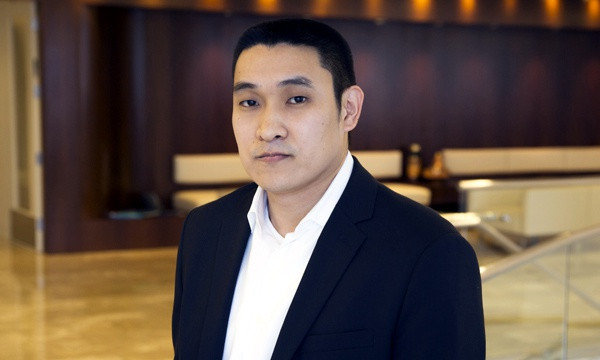Congratulations on joining UVCA. Why did you join the Association?
I wanted to learn more about Ukraine and meet the local VC & PE and technology community. This would be a great way to do that. I was honored to be invited to become a member of the UVCA and its Board. I’m primarily based in Santa-Monica, California. Ring, a startup acquired by Amazon, is also based in Santa Monica, California and extensively utilizes Ukrainian technology teams and was very successful. Several of my clients also use Ukrainian technology teams. So as we became aware of high-quality technical talent here, we became curious to explore more. I also have several Polish clients and since I’m already working with technology companies in this region and on cross-border transactions, I thought there could be potential here in Ukraine.
Orrick is an international law firm, focused on servicing companies in technology, energy, infrastructure and financial sectors globally. How many companies did you advice in 2017? What were the main sectors? Name top-5 Orrick’s clients in 2018.
As you know, technology, energy and infrastructure, and finance are the main sectors that we are focused on. We represent over 1,800 technology companies and over 100 VC firms. In 2017, we represented technology companies in 650+ venture capital financings, and raised over $12.7 billion for startups in 30 different countries. We represent over 20% of the unicorns. We are privileged to represent such companies as Pinterest, Stripe, Asana, Revolut and Warby Parker.
What matters do you usually deal with? For example, is it commercial advice on transactions, high-stakes litigations or compliance matters? Also how you deal with it? Give a couple of examples.
Orrick is a global full-service law firm, so we handle a wide range of matters: from litigation and transactional matters to regulatory matters – the full range of legal matters. As a corporate lawyer, I particularly focus on guiding entrepreneurs in the early ventures and represent companies through their entire life cycles: from formation all the way to an exit, and help negotiate and close deals such as venture capital financings, mergers & acquisitions and public offerings. I also counsel companies on their day-to-day corporate matters. For instance, we represented Instagram when it was sold to Facebook and we represented Planet Labs in its acquisition of the satellite division, Tera Bella from Google.
Let’s talk about M&A deals. During your career, you have represented startup Yes in its sale to Twitter and Compellent Technologies in its sale to Dell for $940 million. What are the golden rules of the successful M&A deal?
Every deal is different, but they have key factors. For a private company start-up, the valuation is not really fixed due to the absence of so-called public pricing. If you’re a seller, you shouldn’t be afraid to negotiate the price. The buyers will not give their best price in the first offer. Thus, you may be able to submit a reasonable counter-offer. And they may accept it. You never know unless you ask.
What’s the key to a successful negotiation in M&A deals?
It’s all about a negotiation strategy. The best strategy is to have more than one potential buyer. If you’re the seller, the more buyers you have, the better deal price you can negotiate for. Having an alternative is the best strategy.
Sometimes negotiating an M&A deal can take a very long time. For instance, in many cases, it can take several months to complete the deal. Unfortunately, time kills all deals. So you have to be mindful of how long a deal takes.
Due diligence is one reason why M&A deals take so much time. The buyer has to conduct due diligence, review all records and contracts, potentially talk to customers, etc. So, to get ahead of that process you should do due diligence on your own company, maintain good records and clean up any issues. It’s where you can anticipate issues and be prepared to answer the due diligence questions of the buyer. That would help to expedite the process and ensure that you can close the deal timely.
One aspect of time you should be aware of – if the other side knows that you’re constrained by time, they can use that against to you. For instance, if the other side knows you have to close a deal in two weeks, they can drag their feet and try to slow you down. So that way at the last minute you would just give up on issues so you can close in time. So you have to be aware of how people can use time against you.
How do you evaluate the Ukrainian M&A and VC market?
You know, it seems to be very promising. There is lot of strong technical talent like I mentioned. It’s the key factor – having a really strong team, especially for the early stage of a startup. Ukraine has a young startup ecosystem, but there are already successful companies such as Grammarly. You know, a lot of people are talking about how helpful their products are. So it seems that there is a lot of potential in Ukraine. I’ve been learning about the Ukrainian ecosystem and its companies. And I’ve been fortunate enough through the UVCA to meet other Ukrainian companies and investors.
What would you advise Ukrainian companies? Give 3 tips.
1) If you plan to raise capital from American investors, you should start your entity as a Delaware C” Corporation. This type of entity is the most familiar and comfortable for American investors to invest in. At Orrick, we’ve represented hundreds of companies around the world which have flipped into the US. Just because you’re not in the US, doesn’t mean you can’t set up a US corporation. We often assist clients with this. We also convert foreign entities into Delaware corporations.
2) Be very careful and accurate with your capitalization table. And the equity you give to your team and other people. You have to be very judicious as to whom you give equity. If you give too much away too soon you will be diluted as a founder and you may not have sufficient incentive to stay at the company for the long term. And that can cause problems and scare away future investors. So you have to be careful of how you manage the capitalization table and whom you give equity to. For instance, you can have your lawyer model the capitalization table to anticipate what the future dilution would look like.
3) Founders should be very thoughtful in terms of the allocation of the equity between themselves. Quite often founders just split the equity 50/50. That sounds fair but in time it doesn’t reflect the actual contribution to the company. Some founders make more sacrifices and take more responsibilities than others. If you don’t split equity properly, it can misalign the founders and cause problems. Studies show that founders, who split their equity 50/50, end up failing more frequently than other teams.
What about investors? How to choose the right one?
There are a lot of categories of investors. At the earliest stage, you usually deal with an angel investor. An angel investor gives you the first capital, but he shouldn’t seeking control. It’s too early for that. When you move on to the early seed stage, you can give the investor a little more rights than angel investors.
Venture capital is the most expensive capital because they have the most control rights and also take the most economics. You may have to report to them, give anti-dilution rights and veto rights and all kinds of protection. You should be very careful in selecting your investors because it’s like a marriage – they will be with you for a long time. You should pick someone you can trust and who can also provide value beyond the capital: for instance, industry expertise, experience, connections etc.






